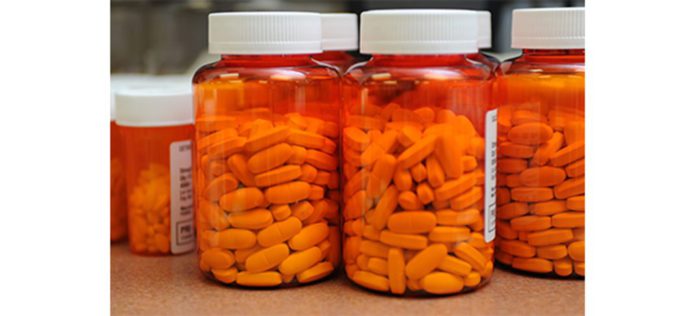
Colorado Attorney General Phil Weiser announced last week that opioid maker Mallinckrodt will pay $1.6 billion in a settlement to remedy the effects of the opioid epidemic.
MNK in February was included in a multistate settlement over its role in the national opioid crisis. The settlement was updated last week, noting $1.6 billion will go into a trust for the states and other valid non-government claims to address the “opioid epidemic,” according to a press release from the Colorado Attorney General’s Office.
Weiser said negotiations are still underway to determine the amount Colorado will receive from the national settlement, but the funds will support drug treatment and recovery paths that are “urgently needed.” Other details — including how the money will be distributed and how the trust will be administered — are also under negotiation.
An update to the agreement was required after MNK voluntarily initiated the entire company into Chapter 11 proceedings for bankruptcy earlier this month. The entities included in the court-supervised process include “substantially all of its U.S. subsidiaries” and specialty brands and generics and some international subsidiaries.
MNK also agrees to its opioid business being subject to court-ordered requirements that will include preventing promotion of opioids and ensuring systems are in place to prevent drug misuse. The case included not only MNK but also certain affiliates and subsidiaries. MNK is a global business consisting of wholly owned subsidiaries developing, manufacturing, distributing and the market of specialty pharmaceutical products and therapies. The subsidiaries of the company focus on autoimmune and rare diseases, according to a March press release from the company.
The payments from MNK will follow a designated schedule, beginning with a $450 million payment upon emergence from bankruptcy, followed by a $200 million annual payment on the first and second anniversary of emergence and then $150 million annually on the third through the seventh anniversaries, according to the press release.
“Mallinckrodt is now on a clear path to eliminating legal uncertainties, maximizing value, strengthening its balance sheet and moving ahead with its strategic plans,” an October press release from the company states.
The new schedule improves the February deal by moving $150 million from the last payment to the first, according to the AG press release. Since February MNK has taken on additional liability due to other legal issues as well as the impact of COVID-19.
The February agreement in principle was reached on the terms of global settlement to resolve “all opioid-related claims against the company and subsidiaries,” according to the MNK website.
The agreement was reached via a court-appointed plaintiffs’ executive committee, which represented the interests of “thousands of plaintiffs” in the multidistrict litigation and supported by 47 state and U.S. territory AGs. In addition, The New York Times reported in February that at the height of the opioid crisis in the U.S., MNK sold more opioids than any other manufacturer.
The terms of the proposed settlement in February would become effective at Specialty Generics’ emergence from Chapter 11 process and court approval of other conditions.
“The opioid epidemic has destroyed thousands of lives and families in communities throughout Colorado,” said Weiser.
According to the National Institute on Drug Abuse’s 2018 data, approximately 128 people in the country die from overdosing on opioids daily. “The misuse of and addiction to opioids — including prescription pain relievers, heroin, and synthetic opioids such as fentanyl — is a serious national crisis that affects public health as well as social and economic welfare.”
The Center for Disease Control and Prevention estimates the total economic burden of prescription opioid misuse in the country is approximately $78.5 billion a year, including healthcare costs, lost productivity, addiction treatment and criminal justice involvement.
The U.S. Department of Health and Human Services website states that 2 million people had an opioid use disorder in 2018, while another 2 million used prescription opioids for the first time. The DHHS states that over 42,000 deaths in 2016 were caused by opioid overdoses, and an estimated 40% of opioid overdose deaths involved a prescription opioid.
-Avery Martinez

